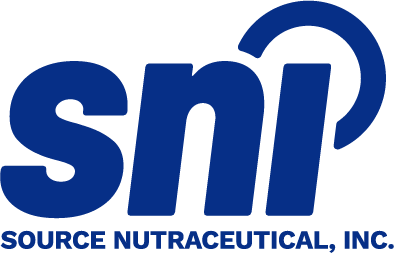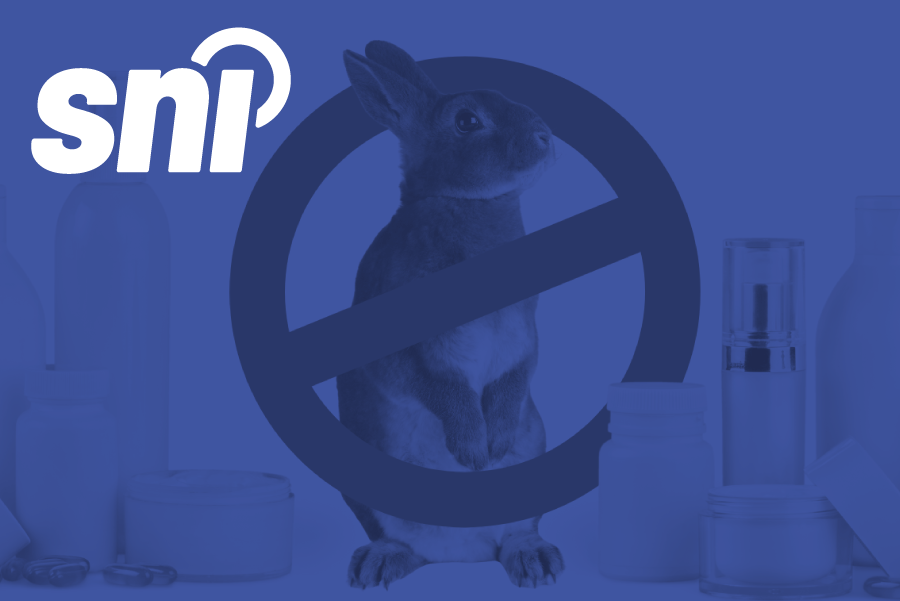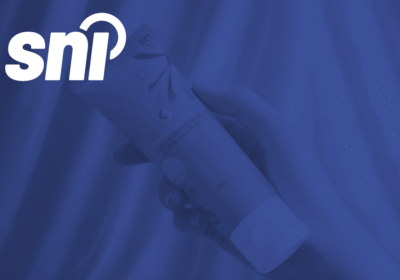 Canada’s 2023 ban on animal testing for cosmetics represents a pivotal moment in the global push for ethical practices within the beauty industry. This landmark regulation not only prohibits the testing of cosmetics and their ingredients on animals within the country but also aligns Canada with a growing number of nations acting against animal cruelty in the cosmetics sector.
Canada’s 2023 ban on animal testing for cosmetics represents a pivotal moment in the global push for ethical practices within the beauty industry. This landmark regulation not only prohibits the testing of cosmetics and their ingredients on animals within the country but also aligns Canada with a growing number of nations acting against animal cruelty in the cosmetics sector.
As the beauty industry adapts to this change, the ban signals a future where cruelty-free and innovative testing methods are embraced to meet safety standards. This shift is driving companies to explore alternative testing methods and re-evaluate their approach to product safety and consumer demands.
What is Cosmetics Animal Testing?

Cosmetics animal testing involves using animals, or animal tissue, to evaluate the safety and effectiveness of cosmetic products and ingredients. This includes testing for skin and eye irritation, toxicity, and other potential health hazards. The process often involves invasive and painful procedures, making it a highly debated global issue.
Animal testing is primarily conducted to ensure consumer safety, using animals as a model to predict harmful effects such as allergic reactions, chemical toxicity, and chronic diseases. Commonly used animals include rabbits, guinea pigs, mice, and rats due to their physiological similarities to humans. Testing methods can be distressing, and often lethal, and include force-feeding, lethal dose tests, and skin irritation studies.
Despite its prevalence, many regions, such as the EU and India, have banned cosmetic animal testing, promoting alternative methods like the SEURAT project to eliminate the need for animal experimentation.
Global Overview of Animal Testing Bans
 Several nations have enacted full bans on cosmetic animal testing. India became the first country in Asia to ban both the testing of cosmetics on animals and the import of animal-tested products in 2014. Brazil followed suit in 2014 with a state-level ban in São Paulo, paving the way for broader restrictions. South Korea implemented a comprehensive ban in 2018, reinforcing a regional shift towards cruelty-free practices, while Taiwan enforced its ban in 2019. Canada later joined in 2023 with legislation that not only prohibited cosmetic animal testing but also banned the sale of animal-tested products. Collectively, these bans now cover a substantial portion of the global population, signaling a significant shift towards cruelty-free cosmetics.
Several nations have enacted full bans on cosmetic animal testing. India became the first country in Asia to ban both the testing of cosmetics on animals and the import of animal-tested products in 2014. Brazil followed suit in 2014 with a state-level ban in São Paulo, paving the way for broader restrictions. South Korea implemented a comprehensive ban in 2018, reinforcing a regional shift towards cruelty-free practices, while Taiwan enforced its ban in 2019. Canada later joined in 2023 with legislation that not only prohibited cosmetic animal testing but also banned the sale of animal-tested products. Collectively, these bans now cover a substantial portion of the global population, signaling a significant shift towards cruelty-free cosmetics.
Partial Bans on Animal Testing
In addition to full bans, several regions have implemented partial bans or specific restrictions. Turkey banned animal testing for cosmetics already available in the market in 2015, encouraging alternative testing methods. In the United States, while no federal ban exists, several states have enacted individual regulations. California took the lead in 2018 by prohibiting the sale of animal-tested cosmetics, setting a precedent for other states. Nevada and Illinois followed in 2019, contributing to the nationwide momentum toward cruelty-free products. These regional bans have helped accelerate global efforts to eliminate cosmetic animal testing.
The movement away from animal testing has been significantly influenced by the approval and adoption of non-animal testing methods. The European Union implemented a complete marketing ban in 2013, prohibiting the sale of cosmetics tested on animals, regardless of where the testing took place. The Organization for Economic Co-operation and Development (OECD) has also played a crucial role in approving various non-animal test methods, facilitating international acceptance and implementation of alternative testing strategies.
Approach to Enforcement of Bans Animal Testing Bans

Enforcement of animal testing bans varies by country and region, relying on a combination of regulatory agencies, legal penalties, and international cooperation. National regulatory bodies are responsible for monitoring compliance and ensuring that cosmetic products meet ethical standards. Violations of these bans can result in fines, product recalls, or other legal actions, serving as deterrents against non-compliance.
Additionally, international collaboration has played a key role, as countries work together to share information, harmonize regulations, and promote the development and acceptance of alternative testing methods. This collective effort underscores a global commitment to eliminating animal cruelty in the cosmetics industry while ensuring consumer safety through innovative and humane testing practices.
Canada’s Ban on Cosmetic Animal Testing
 Canada’s ban on cosmetic animal testing officially took effect on December 22, 2023, marking a significant step in the country’s commitment to cruelty-free practices within the beauty industry. This new legislation prohibits both animal testing for cosmetics and the sale of products that rely on animal testing for safety validation. The move aligns with increasing public demand for ethical alternatives and is part of a global shift toward more humane methods of product safety testing.
Canada’s ban on cosmetic animal testing officially took effect on December 22, 2023, marking a significant step in the country’s commitment to cruelty-free practices within the beauty industry. This new legislation prohibits both animal testing for cosmetics and the sale of products that rely on animal testing for safety validation. The move aligns with increasing public demand for ethical alternatives and is part of a global shift toward more humane methods of product safety testing.
Overview of the Animal Ban on Cosmetic Testing in Canada
The animal testing ban in Canada has significant implications for the cosmetics industry, requiring companies to adjust their practices to ensure compliance. Under the ban, companies are prohibited from conducting animal testing on cosmetics within Canada to establish their safety for meeting the requirements of the Food and Drugs Act or cosmetic regulations of other countries. This means that companies must find alternative, non-animal testing methods to demonstrate that their products are safe to use.
 Furthermore, the safety of any new cosmetic products sold in Canada must be established using only allowable data, which excludes data derived from animal testing. However, there are certain exceptions that allow for the use of animal testing data in specific circumstances, such as when the data was obtained before the ban took effect or when there are no alternative testing methods available.
Furthermore, the safety of any new cosmetic products sold in Canada must be established using only allowable data, which excludes data derived from animal testing. However, there are certain exceptions that allow for the use of animal testing data in specific circumstances, such as when the data was obtained before the ban took effect or when there are no alternative testing methods available.
In addition, if companies claim that their products have not been tested on animals, they must have credible and verifiable evidence to support these claims. To assist the industry in adhering to these new regulations, Health Canada has developed a guidance document titled “Animal Testing Ban on Cosmetics,” which provides detailed instructions on how to comply with the ban, ensuring that cosmetic products are safe and ethically tested without relying on animal testing.
Health Canada’s Enforcement of the Ban
 Health Canada will enforce the ban on cosmetic animal testing by responding to complaints and incident reports submitted by Canadian consumers. Each complaint will be reviewed to determine if it contains enough information to proceed with an investigation. If more details are required, Health Canada may reach out to the person who filed the complaint for additional information.
Health Canada will enforce the ban on cosmetic animal testing by responding to complaints and incident reports submitted by Canadian consumers. Each complaint will be reviewed to determine if it contains enough information to proceed with an investigation. If more details are required, Health Canada may reach out to the person who filed the complaint for additional information.
However, if the evidence supporting the complaint is found to be unreliable, or if the product in question falls outside the scope of the ban, no action will be taken. For example, if a product contains animal testing data that was obtained for non-cosmetic purposes, such as for medical or pharmaceutical use, and the product is still being sold for cosmetic purposes, it may not be subject to the ban. If it is determined that the industry has violated the cosmetic animal testing ban, Health Canada will take appropriate enforcement actions. These corrective actions could include issuing formal warnings, recalling non-compliant products, imposing fines or penalties, suspending or revoking licenses, or, in more severe cases, pursuing legal action to ensure compliance with the ban and protect public health and safety.
Impact on Cosmetic Ingredients Manufactured or Imported into Canada
Under the 2023 ban, all cosmetic products and ingredients must comply with safety testing standards that do not involve animal testing. Manufacturers are required to use alternative testing methods to demonstrate the safety of their products.
Products tested on animals, whether produced within Canada or imported from other countries, are not permitted for sale in Canada unless they meet the country’s requirements for non-animal testing. This means that cosmetics and ingredients tested on animals in other countries cannot be sold in Canada unless they have been re-evaluated using non-animal testing methods.
The ban encourages the adoption of alternative testing methods within the industry and aligns with global trends towards cruelty-free practices. It requires manufacturers to find ways to meet safety standards without relying on animal testing. For international producers, this legislation necessitates compliance with Canadian regulations to ensure their products can be sold in the country.
Scientific Validity of Animal Testing
 The reliability of animal testing has long been questioned due to biological differences between humans and animals. Studies indicate that laboratory animals fail to accurately predict human responses 40% to 60% of the time, making their effectiveness inconsistent. In comparison, modern non-animal testing methods—such as computer models and cell cultures—show a 20% to 30% variability in predicting human reactions, demonstrating greater accuracy in many cases.
The reliability of animal testing has long been questioned due to biological differences between humans and animals. Studies indicate that laboratory animals fail to accurately predict human responses 40% to 60% of the time, making their effectiveness inconsistent. In comparison, modern non-animal testing methods—such as computer models and cell cultures—show a 20% to 30% variability in predicting human reactions, demonstrating greater accuracy in many cases.
While rodents provide complex organ systems that can be useful for research, advancements in science have significantly reduced the need for their use. Differences in metabolism, immune response, and genetic makeup often mean that results from animal testing do not always translate reliably to human biology. As a result, modern alternatives such as in vitro cell cultures, computer simulations, and predictive toxicology tools now offer safer, more accurate, and ethical ways to assess product safety. These methods allow researchers to study human-specific responses directly, minimizing ethical concerns while improving the reliability of safety evaluations.
Current Alternatives to Animal Testing
 In Canada, and all around the globe, many companies had adopted alternative methods such as reconstructed human skin models and computer-based simulations. These innovative approaches not only ensure product safety but also demonstrate the industry’s commitment to cutting-edge, ethical science. However, the ban applies specifically to cosmetic products, leaving gaps in its scope. For instance, it does not cover animal testing for non-cosmetic purposes or testing required by other countries’ regulations.
In Canada, and all around the globe, many companies had adopted alternative methods such as reconstructed human skin models and computer-based simulations. These innovative approaches not only ensure product safety but also demonstrate the industry’s commitment to cutting-edge, ethical science. However, the ban applies specifically to cosmetic products, leaving gaps in its scope. For instance, it does not cover animal testing for non-cosmetic purposes or testing required by other countries’ regulations.
Some alternatives include:
- In-vitro Testing: This involves using human cells or tissues in a lab to test cosmetic products. By growing skin, eye, or other tissue models from human cells, it offers a more accurate and ethical alternative to animal testing, closely simulating real human reactions.
- Computer Modelling and Simulations: These advanced models can predict how cosmetic ingredients will interact with human cells or tissues. They simulate biological reactions, helping avoid animal testing while delivering faster results.
- Reconstructed Human Skin Models: Lab-grown human skin models, made from human cells, are used to test things like skin irritation, toxicity, and absorption. This method closely mimics real skin, making it especially helpful for skincare product testing.
- Human Volunteer Studies: In certain cases, human volunteers can undergo controlled testing, like patch tests, to check for allergic reactions or skin irritation. These studies are done ethically and help replace animal testing.
 From an accuracy standpoint, these alternative testing methods are proving to be highly effective. In-vitro testing and reconstructed human skin models replicate human skin reactions with greater precision than animal testing, offering more reliable results. Computer modelling and simulations, using advanced algorithms, predict how cosmetic ingredients will interact with human cells or tissues with a higher degree of accuracy, reducing the need for live testing. Human volunteer studies, conducted in controlled, ethical conditions, provide real-world data on skin reactions. Compared to animal testing, these methods offer more accurate, relevant insights into product safety, making them a better choice for ingredient and cosmetic manufacturers.
From an accuracy standpoint, these alternative testing methods are proving to be highly effective. In-vitro testing and reconstructed human skin models replicate human skin reactions with greater precision than animal testing, offering more reliable results. Computer modelling and simulations, using advanced algorithms, predict how cosmetic ingredients will interact with human cells or tissues with a higher degree of accuracy, reducing the need for live testing. Human volunteer studies, conducted in controlled, ethical conditions, provide real-world data on skin reactions. Compared to animal testing, these methods offer more accurate, relevant insights into product safety, making them a better choice for ingredient and cosmetic manufacturers.
How Brands Adapt to the Animal Testing Bans
As global bans on animal testing expand, brands are rethinking their processes to align with ethical practices and consumer demand. This shift requires reformulating products, sourcing ingredients responsibly, investing in alternative testing methods, and obtaining cruelty-free certifications.

To comply, companies are leveraging predictive models and human cell-based testing, which offer greater accuracy than traditional animal testing. Responsible ingredient sourcing has also become a priority, ensuring that only pre-approved, cruelty-free ingredients from ethical suppliers are used.
Investing in in vitro testing and computer simulations allows brands to maintain safety standards while eliminating the need for animal testing. Additionally, obtaining certifications like Leaping Bunny and PETA’s cruelty-free seal reinforces a brand’s commitment to ethical practices, providing consumers with transparency and confidence in their products.
Future Trends and Predictions
 Countries like Canada, India, and South Korea are leading the charge with new laws and reforms that embrace non-animal testing methods. These changes reflect a global commitment to cruelty-free practices and highlight a shift toward more compassionate, innovative approaches. As scientific advancements like in-vitro testing and computer modelling replace traditional animal testing, the need for animal subjects diminishes, paving the way for more ethical and reliable testing alternatives.
Countries like Canada, India, and South Korea are leading the charge with new laws and reforms that embrace non-animal testing methods. These changes reflect a global commitment to cruelty-free practices and highlight a shift toward more compassionate, innovative approaches. As scientific advancements like in-vitro testing and computer modelling replace traditional animal testing, the need for animal subjects diminishes, paving the way for more ethical and reliable testing alternatives.
Consumer awareness is also on the rise, with nearly half of Americans opposing animal testing, which is fueling the demand for cruelty-free products. Programs like Leaping Bunny are empowering consumers to support ethical brands, giving cruelty-free companies a competitive advantage. At the same time, efforts to harmonize international regulations are making it easier for companies to comply with cruelty-free standards, fostering global cooperation and strengthening commitments to animal welfare. These trends indicate a promising future for a cruelty-free cosmetics industry.
Final Remarks
Canada’s ban on animal testing for cosmetics is a significant victory for both ethics and innovation, reflecting a global movement toward more humane practices.
As the cosmetics industry embraces alternative testing methods, the move away from animal testing ensures both the safety of consumers and the welfare of animals. The Canadian legislation, in conjunction with international efforts, marks a shift toward more sustainable and ethical beauty standards, enhancing consumer trust and fostering scientific progress. This ban serves as an important reminder that ethical responsibility and innovation can go hand in hand, paving the way for a more compassionate and scientifically advanced future in the beauty industry.
Regulatory Support
Curious about Canada’s animal testing ban or need expert help with cosmetic labelling compliance? The SNI Regulatory team is here to make your journey seamless! We deliver premium, tailored solutions for businesses of all sizes – from startups to industry leaders.
Let us put our expertise to work for you and ensure your cosmetic products successfully enter the Canadian market with ease!
Put Your Cosmetic Products to the Ultimate Test with SNI Clinic!
![]() Did you know Manitoba is one of the best places to test cosmetic products? With its diverse climate—freezing winters and scorching summers—your formulations face real-world conditions that challenge their performance. At SNI Clinic, we provide expert product testing to help you refine and perfect your formulas, ensuring they’re ready for market success.
Did you know Manitoba is one of the best places to test cosmetic products? With its diverse climate—freezing winters and scorching summers—your formulations face real-world conditions that challenge their performance. At SNI Clinic, we provide expert product testing to help you refine and perfect your formulas, ensuring they’re ready for market success.
Ready to elevate your brand? Visit SNI Clinic today and take your products to the next level!
💡 Compliance is easy with the right support!
📩 info@sourcenutra.com




